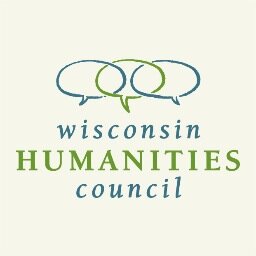Milwaukee organizations awarded almost $30,000 to explore social problems
Projects address racial tensions, political censorship and sustainable water use.
Milwaukee, Wis. (November 1, 2016) – Conversations about the trauma brought on by racial violence, a project the looks at the impact of the Hollywood Blacklist on the works of film makers and its relevance to today, and a video game app that engages players in the history and human relationship with water in Milwaukee were awarded almost $30,000 in funds from the Wisconsin Humanities Council in October.
Racial repair and reconciliation are the themes of the Founder’s Day Gathering Feb. 25, 2017, sponsored by the Dr. James Cameron Legacy Foundation, under the auspices of America’s Black Holocaust Museum. The project was awarded $10,000 from the WHC to help bring in a slate of speakers who will focus on emerging strategies for acknowledging and healing racial trauma. The project explores a number of questions: How should America commemorate some of the most disturbing chapters of our racial history? How might that commemoration help or hurt victims, perpetrators and bystanders. What role should our museums and institutions play in the work of memory and racial healing? These issues become extremely relevant in light of current events.
This project falls under the guidelines of the WHC’s special focus on race and ethnicity. Recent events have raised a national call for a more consequential public discussion of the persistent social, economic, cultural, and racial issues that divide our communities. As part of that conversation, the WHC has a special interest in funding projects that engage in, or foster, meaningful community conversations about issues of race and ethnicity. For more information, see ABHM http://www.abhmuseum.org.
The Hollywood Blacklist is the focus of a new exhibit being developed by the Jewish Museum Milwaukee coinciding with the 70th anniversary of the House Un-American Activities Committee Hearings that barred hundreds of people from their livelihoods based on accusations of being Communist, a political perspective protected by the First Amendment to the Constitution. The project, with the help of $9,971 grant from WHC, will be working with archives at the University of Wisconsin-Madison, which has extensive holdings of films by Blacklistees. The exhibit will also highlight the role of the outsider and how marginalized groups responded to government and industry intervention, and how civil liberties were curtailed. The museum intends to parallel this discussion with contemporary threats to free speech and civil liberties. It is scheduled to open in September 2017.
“JMM is thrilled to be undertaking this course of research and exhibition,” says Ellie Gettinger, Education Director, Jewish Museum Milwaukee. ”We hope to educate Wisconsin audiences about this little understood time period and develop themes related to American rights and the value of free speech in our society. Both the exhibit and its accompanying program will offer participants connections to the US in the 21st Century.”
This project meets the goals of WHC’s Working Lives Project as it explores the impact that censorship had on livelihoods and cultural expression in film making. The Blacklist not only cost some in the film industry their jobs, it also chilled the creative efforts of those who weren’t under investigation. For more information contact JMM at www.jewishmuseummilwaukee.org.
Water Story MKE is a free, place-based public engagement app being developed through Reflo-Sustainable Water Solutions, to explore both the history of human engagement with water in Milwaukee and the state of water in Milwaukee today. It also opens up conversation about a sustainable water future. Milwaukee has a rich collection of water stories. The game has five pilot sites that explore Bradford Beach, Pumphouse, Lakefront Brewery, the Brewery Neighborhood, and Cream City Farms @ Walnut Hill for both their interesting water histories and their green infrastructure. Players earn points from their engagement with Milwaukee’s water stories and are invited to share their stories about water on the game platform.
Raising awareness about Milwaukee water, how those waters shaped the city and how Milwaukee has brought many of its waters back to life, are extremely relevant topics in light of water borne illnesses, fish advisories and beach closings that have dominated headlines. By engaging people in games, Reflo hopes that understanding the human relationship to water will help motivate water stewardship and green infrastructure.
“Think Pokemon GO meets Milwaukee water stories hidden in plain sight,” says Michael Timm, who is directing the project for Reflo. “Water Story MKE combines the intrinsic motivation of a scavenger hunt with the appeal of mobile devices to call our attention back to the world around us, sharing how water has shaped our community’s story.”
Join the community for a water-themed Ex Fabula StorySlam at Lakefront Brewery, 1872 N. Commerce St., on Tuesday, Feb. 21, 2017 when the app will be shared with the public. More details about the Great Water Race–a bikeable citywide scavenger hunt using the app in summer 2017–will be announced in spring.
For more information http://refloh2o.com/reflo-updates/water-story-mke
About Wisconsin Humanities Council
The Wisconsin Humanities Council is a leading statewide resource for librarians, teachers, museum educators and civic leaders, who drive entertaining and informative programs using history, culture and discussion to strengthen community life for everyone. The Wisconsin Humanities Council also awards more than $175,000 a year over seven rounds of grants to local organizations piloting humanities programming. For more information on Wisconsin Humanities Council, visit http://wisconsinhumanities.org or connect on Facebook at www.facebook.com/WisconsinHumanitiesCouncil or Twitter at @WiHumanities.
NOTE: This press release was submitted to Urban Milwaukee and was not written by an Urban Milwaukee writer. While it is believed to be reliable, Urban Milwaukee does not guarantee its accuracy or completeness.























